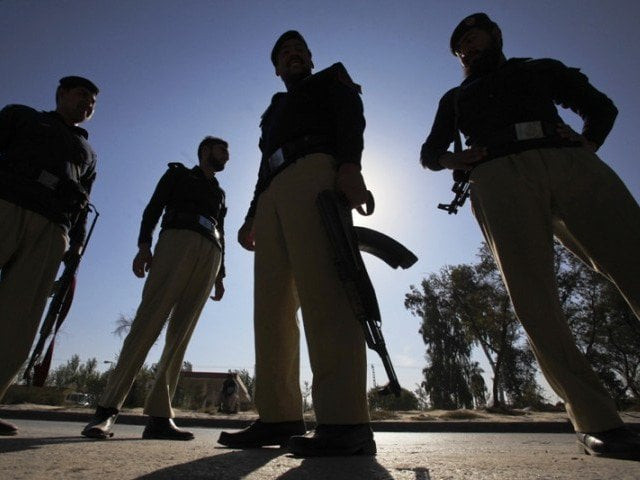‘Every third cop guilty of misuse of authority’
Five-year data shows average of 60,000 personnel being punished every year

PHOTO: FILE
Every third member of the police department has been found guilty of corruption, misuse of authority and other illegalities every year, an analysis of five years of data revealed. Even with the rate of punishment, the action proved ineffective when it came to reforming the approach of members of the force. This has been proven by the fact that the proportion of police officials punished remains unchanged over the passage of time. Data showed that, on average, that 60,000 policemen were given punishments every year.
At least, 301,757 police officers from the rank of constable to DSP/ASP were found guilty in internal inquiries between 2014 and 2018.
In 2014, 59,164 policemen, including 30,325 constables, 3,557 head constables, 10,121 ASIs, 13,269 SIs, 1,840 Inspectors and 52 DSPs/ASPs were awarded punishments.
In 2015, the figure remained almost constant as 57,318 members of the force, including 31,679 constables, 3,030 head constables, 10,013 ASIs, 10,382 SIs, 2,162 Inspectors and 52 DSPs/ASPs were held accountable in internal inquiries.
The transgressions remained constant as in 2016, a total of 61,422 policemen, including 35,348 constables, 4,262 head constables, 9,834 ASIs, 10,022 SIs, 1,886 Inspectors and 70 DSPs/ASPs were found guilty of violations. The continued violation saw no respite in 2017 because as many as 64,458 policemen, including 36,395 constables, 3,773 head constables, 12,151 ASIs, 10,077 SIs, 1,792 Inspectors and 270 DSPs/ASPs were found guilty.
The trend still prevailed in 2018 as at least 36,620 constables, 3,913 head constables, 9,887 ASIs, 7,249 SIs, 1,572 Inspectors and 154 DSPs/ASPs were found guilty.
Human rights activist and Advocate Saroop Ijaz told The Express Tribune that such huge numbers were self-explanatory and outlined the dysfunctional police accountability mechanism. “This is one of the fundamental flaws that police conducted accountability for itself. However, the mechanism was, by-default, designed to protect the department.”
There should be an independent and democratic mechanism for the police department, he stressed. Ijaz termed the terms of police accountability in recent police reforms proposal as a retrogressive move.
Speaking on the condition of anonymity, a police officer said that the crux, focal point or essence of criminal justice system, especially policing, in the country was based on “deterrence”. The philosophy behind police’s working was taking measures that could discourage criminals from committing crime, he added. Unfortunately, the department, as well as the criminal justice system, was designed in a way that it is working to ensure impunity for those who were part or on top of it, he asserted.
He pointed out that the matter can be understood with an analysis of a few notorious examples of police brutality. He cited the Sabzazar encounter, Model Town massacre, Sahiwal tragedy, Salahulddin custodial torture, North Cantonment custodial death and Gujjarpura illegal torture cell cases as examples.
In all these or other such cases, the ‘culprits’ not only managed to get away with their wrongdoings, but a few also performed at key positions. For example, the prime accused of Sabzazar encounter remained an influential and ‘blue-eyed’ cop for a long span of time, he added.
In the Model Town massacre, police opened fire in broad daylight on children and women. However, all the officers who took part in the operations rejoined the force except a very few, he revealed.
According to a statement issued by Punjab Inspector General of Police Captain (Retd) Arif Nawaz Khan on Wednesday, however, the process of punishment and reward is continuing in the Punjab police. Officers and officials, whose performance is good, are rewarded while those who are inefficient and corrupt are awarded strict punishments.
Efforts were made to contact Punjab Police additional IG Inam Ghani’s focal person and DIG Shariq Kamal, but they did not respond.
Published in The Express Tribune, October 26th, 2019.



















COMMENTS
Comments are moderated and generally will be posted if they are on-topic and not abusive.
For more information, please see our Comments FAQ